Can a Bad Catalytic Converter Cause a Car to Run Rich?
The catalytic converter is a foundational component of a vehicle’s exhaust system and is legally required in several states. But can issues with the converter cause your engine to run “rich”?
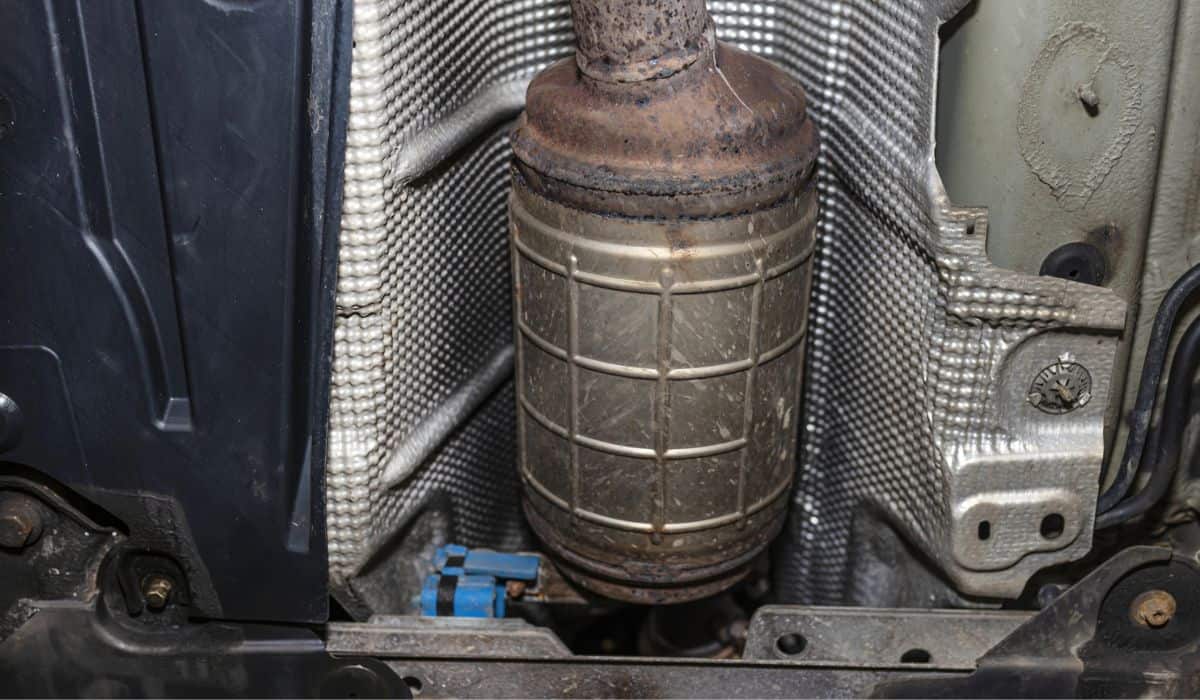
Can a bad catalytic converter cause a rich condition in your car?
The catalytic converter cannot cause a car to run “rich.” Vehicles running rich typically have a fuel ratio problem caused by the Electronic Control Unit (ECU) and various sensors. Rich-running enginebacs can cause damage to a catalytic converter and eventually lead to a converter failure.
Both running rich and a malfunctioning catalytic converter are serious automotive issues. But while a malfunctioning catalytic convert can’t lead to a car running “rich,” a car running rich can damage a catalytic converter. Let’s take a look at some of reasons why a car runs rich, why this is bad for your catalytic converter, and signs of catalytic converter failure.
As a mechanic, I encourage people to get their car looked at if they notice it has a rich condition. If you notice your car backfiring – making a loud popping sound and shooting black smoke out of the exhaust – get it looked at. There might be too much fuel and not enough air in the fuel/air mix.
Will a Bad Catalytic Converter Effect Fuel Mixing?
A car’s fuel mixture refers to the ratio of fuel and air during the combustion process. Too much fuel without enough air indicates that a vehicle is running “rich.” A rich condition is where there is too much fuel and too little air in your engine, leading to some of the fuel entering the exhaust without being burned. This is also called the engine “running rich.”
On the other hand, too much air with too little fuel means a car is running “lean.”
Catalytic converters cannot cause a vehicle to run “rich.” Vehicles that run rich have a fuel ratio issue that’s caused by the Electronic Control Unit (ECU), which receives signals from various sensors.
That said, a car running rich can cause damage to a catalytic converter and eventually lead to a converter failure.
What Causes a Car to Run Rich?
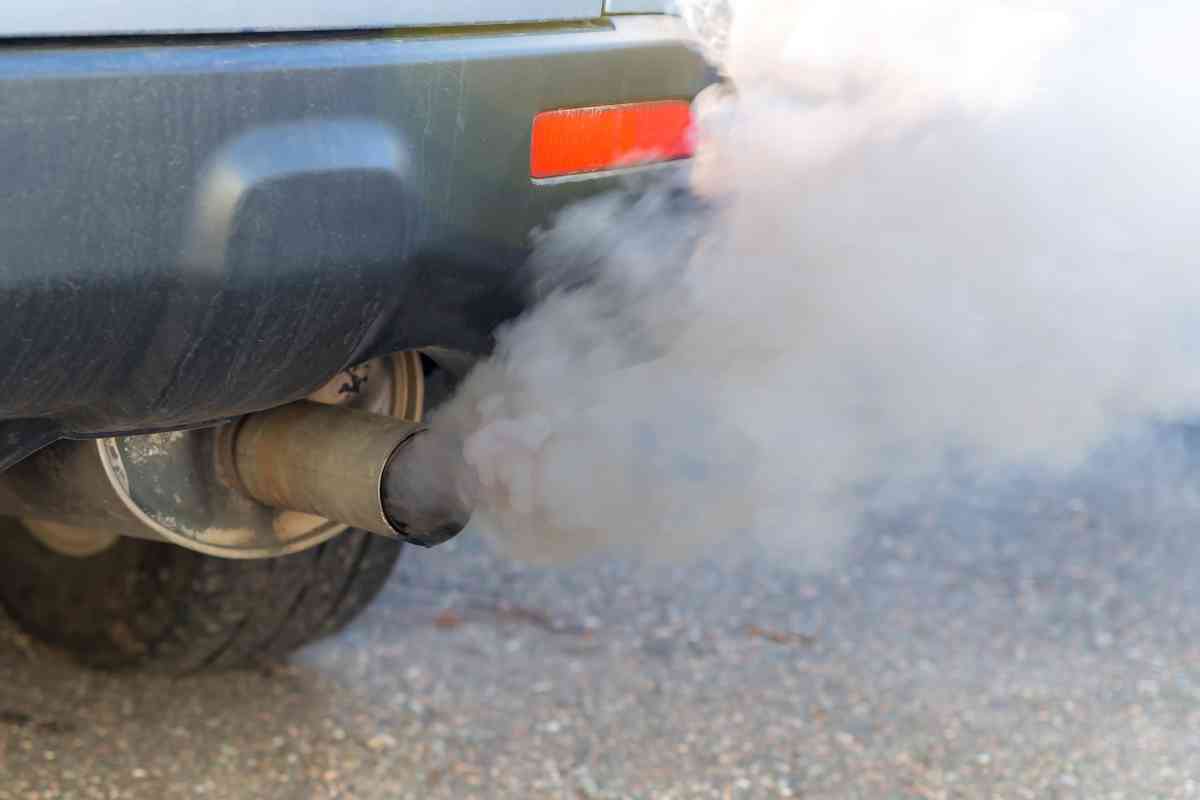
So, if the catalytic converter doesn’t cause a vehicle to run rich, what does? The most frequent causes of a rich engine are issues with various sensors like the MAF, MAP, or O2 sensor. Broken coolant temp sensors, IAT sensors, or damaged fuel pressure regulators can also cause issues.
Some of the symptoms of an engine running rich include the following:
- Check Engine Light on the dashboard
- Fuel smell coming from the exhaust pipe
- Constant need to refill the gas tank
- Decreased engine performance
- Thick black smoke from the exhaust pipe
- Significant carbon monoxide content
- Faulty spark plugs
A vehicle running rich can have several causes, as there are numerous components in an engine that impact the fuel ratio. It’s best to deal with these issues sooner rather than later, as rich engines can damage the catalytic converter over time.
What Does a Catalytic Converter Do?
A catalytic converter turns toxic gasses in your exhaust into harmless gasses. Catalytic converters reduce pollution.
A broken catalytic converter won’t cause an engine to run rich. There’s no way for a bad catalytic converter to cause too little air to enter the engine.
What Causes an Engine to Run Rich?
Cars use electronics to regulate the flow of air and fuel into the engine’s combustion chamber. If the ECU (electronic control unit) isn’t working properly, the wrong mix of fuel and air will enter the chamber.
Sometimes an engine might run too lean instead of too rich. This means there is too much air and too little fuel in the mixture.
What is Backfiring?
Backfiring is when fuel burns or explodes outside of your engine, such as in the exhaust system. This is loud, produces black smoke, and is bad for your car although it may not damage it quickly.
Sometimes, unburned fuel escapes frombad ca your engine and enters your exhaust system. This unburned fuel builds up until heat ignites it.
This creates a small explosion that doesn’t immediately do any damage but is very bad for your car.
How Does This Affect Catalytic Converters?
Backfiring can damage things in your exhaust system, including catalytic converters. A catalytic converter is fairly durable and will last until late in your car’s life.
However, it cannot handle unburned fuel exploding in or around it repeatedly. This will break it, and a broken catalytic converter leads to other problems if you don’t fix it.
Risks of a Malfunctioning Catalytic Converter
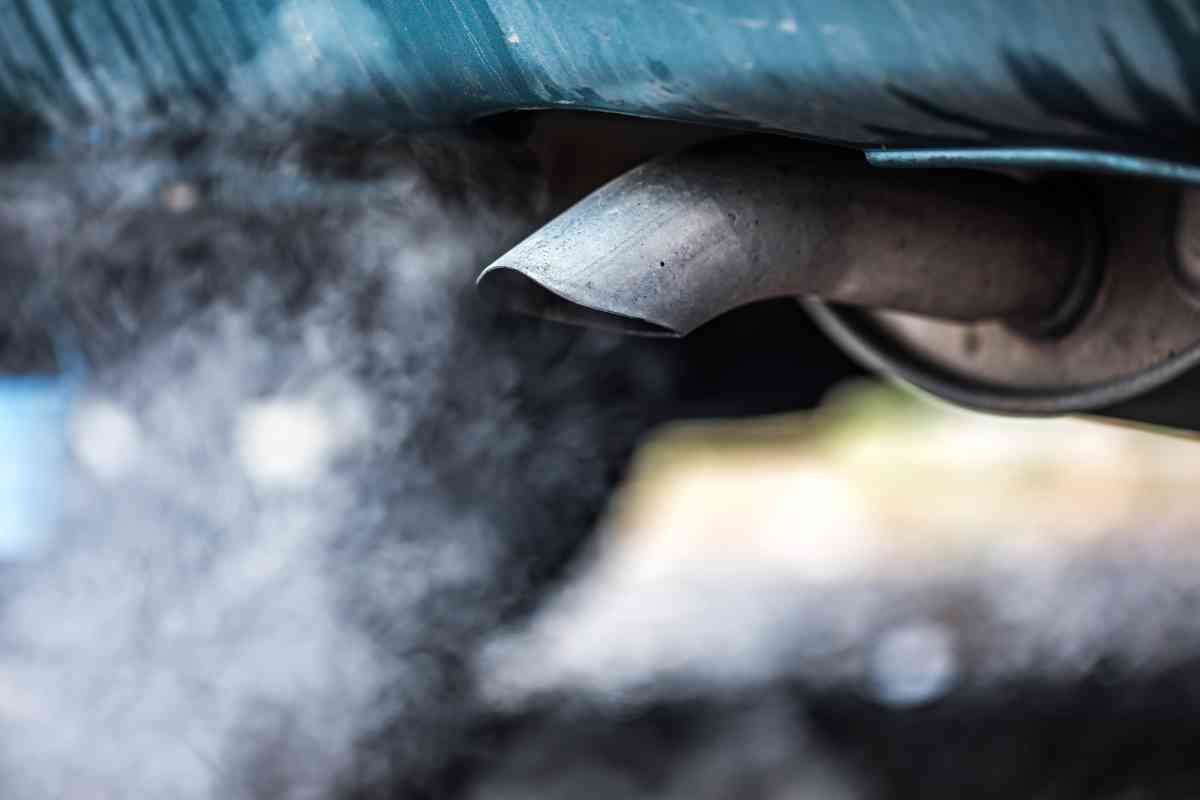
A lot of the time, an old or damaged catalytic converter is clogged. The exhaust won’t get through a clogged converter easily.
This will make the exhaust push back against the engine, causing reduced engine performance and many other problems. You won’t be able to accelerate as fast and your engine will perform weakly.
Heat Below Your Vehicle
One sign of a malfunctioning converter is much more heat under your vehicle than normal. A faulty converter will heat up.
If the converter heats up, this will make the engine overly hot, too. If your engine has been too hot recently, get the converter looked at.
Sulfur Smell in Exhaust
You may smell rotten eggs in your car, around your engine, or at least in your exhaust. This smell is sulfur.
Normally, sulfur is odorless before it leaves your car. However, with a damaged catalytic converter, sulfur may escape. The sulfur smell could also be from other problems, such as a leaking battery.
Engine Damage
Eventually, a bad catalytic converter could damage your engine. The heat and pressure caused by the blocked exhaust may eventually do damage.
Problems Lead to Bigger Problems
A problem with your car’s electronic control unit may make your engine run rich. This could lead to backfiring, which could damage the catalytic converter.
A damaged converter might block exhaust from escaping. If exhaust can’t easily escape, this will reduce your engine’s performance and eventually damage your engine.
If you notice your engine is running rich, fix the problem before it does any damage.
What are the Symptoms of a Bad Catalytic Converter?
Although the catalytic converter can’t cause an engine to run rich, a rich-running engine can indeed damage the converter.
The rich fuel causes the catalytic converter to become clogged and less efficient, leading to eventual failure. Catalytic converters are designed to last ten or more years, so these issues are common in higher-mileage cars and older models.
There are a few tale-tell signs to look out for if you think your catalytic converter is going bad, including the following:
Performance Decreases
Performance issues are some of the first signs of catalytic converter failure. The vehicle can begin to feel slow, sluggish, and like it’s struggling. In some situations, the engine can stop working entirely and will need repair.
Reduced Acceleration
Along with performance issues comes poor acceleration. The exhaust gasses in a vehicle must escape and cause problems if they’re trapped in the car.
Restricted converters can cause the fumes to build up, resulting in poor acceleration. Jerky driving and stall-outs are also common owner complaints.
Black Smoke Coming Out of the Exhaust
If your catalytic converter fails, you may notice dark-colored smoke or smog coming out of the exhaust pipe. Clogs typically cause thick, dark smoke in the catalytic converter or exhaust system.
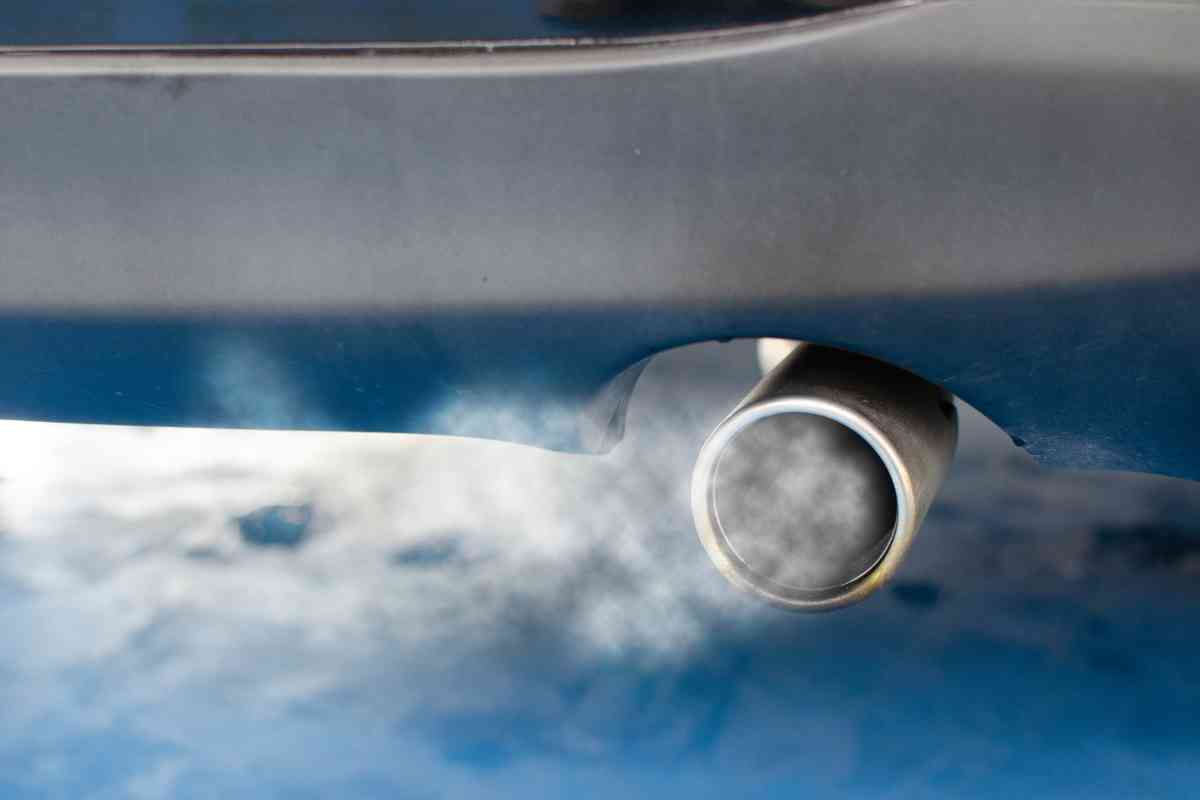
Sulfur or Rotten Egg Smell
Blocked or broken catalytic converters can cause an unpleasant smell. You might notice a sulfur or rotten egg-like scent coming from the tailpipe of your car if the catalytic converter fails.
These smells can spread to the inside of the car’s cabin in some cases.
Less Fuel Efficiency
Restricted converters reduce the amount of airflow in a car’s engine. The engine will start to use more fuel to overcompensate.
These issues will cause significant decreases in fuel economy. If you have less fuel efficiency, you may want to inspect your catalytic converter.
Problems Starting the Vehicle
Exhaust gasses in a vehicle need to escape, or too much pressure will build up, causing issues in the process.
Clogged converters can prevent exhaust fumes from leaving the car or make the process less efficient. The increased pressure may cause your vehicle to stall when you start it, amongst other issues.
Rattling Sounds
The interior components of a catalytic converter can become loose or break apart due to damage, age, or other factors. The loose and broken parts can rattle around inside the converter while you drive. You might hear rattling or banging sounds from the underside of the vehicle.
Check Engine Light On
The check engine light on a car’s dashboard can indicate many things, including faulty converters. The check engine light can display if the catalytic converter starts to fail.
The vehicle’s sensors track gas levels via the exhaust to measure the converter’s efficiency. If the catalytic converter isn’t working correctly, the check engine light may appear.
Failed Emissions Test
As mentioned earlier, the catalytic converter is necessary for reducing harmful gasses and passing emissions tests in several states. Failing an emissions test can signal that your catalytic converter is going bad. You might also have some of the other telltale signs mentioned above.
Best Practices for Catalytic Converter Maintenance
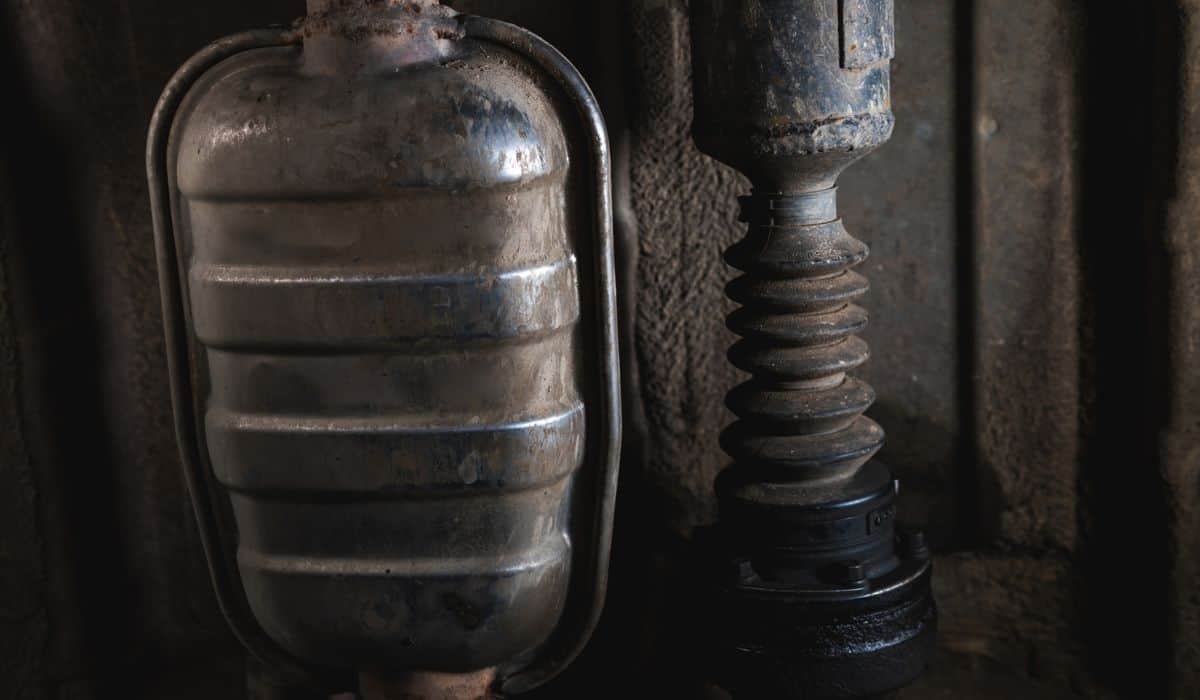
Although catalytic converters are designed to last over 10 years, they can encounter common issues and need to be adequately maintained. Bad converters can cause performance issues and lead you to fail emissions testing. Fortunately, you can use the following maintenance tips to keep your vehicle in tip-top shape:
- Follow your vehicle’s recommended maintenance schedule.
- Keep your exhaust, emissions, and combustion systems in good condition.
- Diagnose and resolve any check engine light issues.
- Avoid running your engine too rich.
Many issues with a catalytic converter stem from other parts of the emissions system or engine. Diagnosing and resolving problems as soon as they appear will ensure you get the most out of your catalytic converter’s lifespan and help you avoid expensive repairs.
Do Catalytic Converters Break Easily?
No, a catalytic converter can easily last for 100,000 miles. It will work perfectly fine with no repairs and no maintenance until fairly late in your vehicle’s life. It won’t outlast a vehicle that you take care of, but the converter is durable.
Catalytic converters are fairly simple devices, which makes them long-lasting. There are no gears or other mechanical parts in a catalytic converter. A catalytic converter is simply a chamber that chemically changes gasses to make them less toxic.
Replacing a catalytic converter costs less than $3000 and may only cost $1000. That is not cheap, but at least it won’t be necessary for a long time.
Key Takeawaysoi
- A broken catalytic converter can cause problems including reduced engine performance and possibly engine damage. However, it will not cause a rich condition.
- If your engine is running rich, this is because a sensor is faulty. An electronic sensor is failing to calculate how much fuel and air should be sent to the engine.
- Running rich means that the engine is getting too much fuel and too little air. If there isn’t enough air to burn all the fuel, unburned fuel ends up in the exhaust system, where it ignites.
- While a bad catalytic converter cannot cause a rich condition, a rich condition can damage your catalytic converter. Unburned fuel igniting outside of the engine can damage your converter.
- If you notice that your engine is running rich, take your car to the shop. Don’t ignore a problem that can damage many parts of your car.
